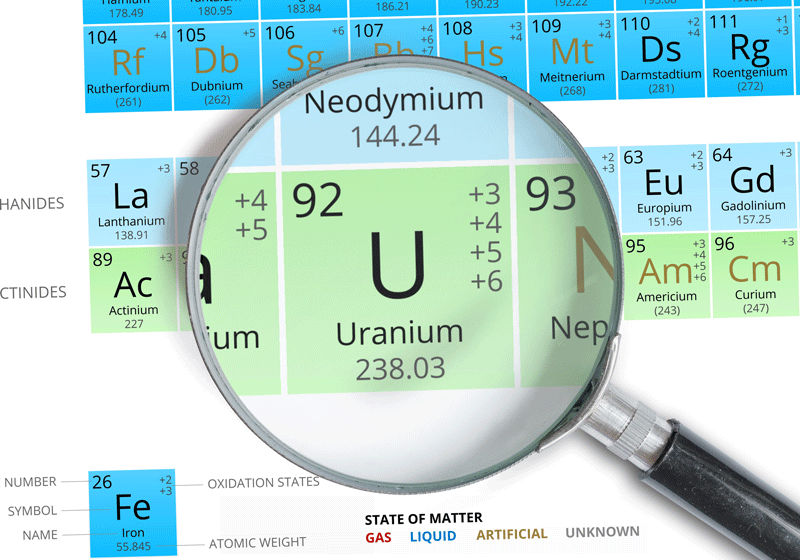Uranium Water Testing CT
Connecticut has added uranium as a requirement to water testing for new wells as of 2022. Uranium is a naturally-occurring metallic mineral that can turn up in both ground water and surface water in areas where it exists in the local bedrock. It is radioactive and toxic to life at high exposures. It has been linked to various cancers, including bone cancer, and is toxic to the kidneys.
Naturally-occurring uranium takes three forms (also known as isotopes): uranium-234, uranium-235, and uranium-238. Uranium-238 is the most common form. Over 99 percent of the uranium found in nature throughout CT is uranium-238.
Uranium is not stable but breaks down into other elements including radium and radon. This process is called decay, and alpha radiation is released. Both radium and radon are also unstable, and decay to other elements, releasing additional radiation.
Together, all of these various forms of radiation-emitting breakdown products are called radionuclides. The total amount of radioactivity emitted is combined and often referred to as gross alpha. The gross alpha results are measured using the term pico Curies per liter (pCi/l).
Uranium used in the nuclear industry and in weapons manufacture has been enriched to increase its propensity for nuclear fission. Enriched uranium does not occur naturally in the environment in Connecticut, but may be present in the case of industrial accident or downwind of nuclear explosions.
Drinking Water Testing and Uranium
Connecticut has added uranium to the required water testing for new wells. Call today to schedule an appointment to have your water tested. 888-558-1574
